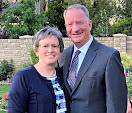The following poem comes from an experience I had years ago in Menan, Idaho, that ended up as an essay not shared with many. After Joanne and I read Elizabeth Acevedo's Clap When You Land, I knew I needed to do what Acevedo did: Construct the story in narrative poetic form. It's rather long but worth the read. Grab your tissues because you will need them....
Bulmarito
In the dark night, a car lleno de niños
full of children
and a father
skid sideway,
smash into a cement embankment,
as the car attempts to round the curb.
The police arrive, red lights flashing,
only to find two young children already dead,
one almost dead who dies
en route to the hospital.
The other three children
and their father
are rushed to the nearby hospital
along the banks of the Snake River.
My call comes early the next morning.
A lump races to my throat,
sticks there like Elmer’s glue in your palm,
and the words “Why?” Why? Why?”
hang on my lips like shreds of cheese
from a hot pizza and cling there,
too afraid to leave and be exposed
to an unwanted answer.
I rush to the hospital,
see their diminutive mother,
standing alone and frail,
who rushes into my arms,
sobbing, shaking from grief, repeating
“Mi Mario. Mi Juanita! Mi Benjamin!”
I ask her about the other three niños
and her husband.
We quietly go from room to room.
In one room, her husband is hooked up
Bulmarito
In the dark night, a car lleno de niños
full of children
and a father
skid sideway,
smash into a cement embankment,
as the car attempts to round the curb.
The police arrive, red lights flashing,
only to find two young children already dead,
one almost dead who dies
en route to the hospital.
The other three children
and their father
are rushed to the nearby hospital
along the banks of the Snake River.
My call comes early the next morning.
A lump races to my throat,
sticks there like Elmer’s glue in your palm,
and the words “Why?” Why? Why?”
hang on my lips like shreds of cheese
from a hot pizza and cling there,
too afraid to leave and be exposed
to an unwanted answer.
I rush to the hospital,
see their diminutive mother,
standing alone and frail,
who rushes into my arms,
sobbing, shaking from grief, repeating
“Mi Mario. Mi Juanita! Mi Benjamin!”
I ask her about the other three niños
and her husband.
We quietly go from room to room.
In one room, her husband is hooked up
to tube after tube,
wire after wire, in a coma
from whence there is ultimately no return.
Eduardo lies with a broken collar bone
and badly cut up mouth and lips.
Graciela, the oldest, is covered with bruises,
her arm is in a cast,
her hair tangled around her face,
now laced with a scowl,
one that will remain
for some time, maybe even years.
The nurse enters, whispers to me
the little boy is crying for me.
For me? Why not his mother?
I follow the nurse, the words “why”
still on my lips, still stuck,
still unwilling to come out.
His room is dark, quiet,
a whir of machines interrupting
the dark with their sounds and lights.
The nurse tells me they amputated the right leg
just below the knee and even contemplated
taking the other but refrained.
A small white bowl of Jell-O
sits undisturbed by his bed stand.
The nurse said he has not touched any food,
even refused, but that he needs to eat something.
“Will you try to feed him?” she asks quietly.
“Bulmarito, estoy aquí” I am here.
I whisper quietly, not wanting to interrupt his peace.
The niño, only eight, looks up at me
through those big butterfly eyes, tries to smile.
“Me patita me duele,” My foot hurts,
he whispers through chapped and puffy lips.
I touch his forehead, too warmish,
sweep a couple of black curls out of his eyes.
His small brown face is soft
with no scratches or bruises.
A sense of both pain and peace
rest on his brown cheeks.
I lift a spoon half full of Jell-O.
“Hay que comer un poquito, Bulmarito,”
“You have to eat just a little,” I say,
lifting the spoon to his lips.
Poco a poco, little by little,
he slurps bite after bite,
quietly using his tongue and teeth
until each spoonful is gone,
swallowing carefully
until nothing remains in the bowl.
I sit the bowl back on the little table.
I look back at Bulmarito,
so tiny and brown in that big bed,
covered with white blankets and white sheets.
“Mi… patita… me… duele…!”
wire after wire, in a coma
from whence there is ultimately no return.
Eduardo lies with a broken collar bone
and badly cut up mouth and lips.
Graciela, the oldest, is covered with bruises,
her arm is in a cast,
her hair tangled around her face,
now laced with a scowl,
one that will remain
for some time, maybe even years.
The nurse enters, whispers to me
the little boy is crying for me.
For me? Why not his mother?
I follow the nurse, the words “why”
still on my lips, still stuck,
still unwilling to come out.
His room is dark, quiet,
a whir of machines interrupting
the dark with their sounds and lights.
The nurse tells me they amputated the right leg
just below the knee and even contemplated
taking the other but refrained.
A small white bowl of Jell-O
sits undisturbed by his bed stand.
The nurse said he has not touched any food,
even refused, but that he needs to eat something.
“Will you try to feed him?” she asks quietly.
“Bulmarito, estoy aquí” I am here.
I whisper quietly, not wanting to interrupt his peace.
The niño, only eight, looks up at me
through those big butterfly eyes, tries to smile.
“Me patita me duele,” My foot hurts,
he whispers through chapped and puffy lips.
I touch his forehead, too warmish,
sweep a couple of black curls out of his eyes.
His small brown face is soft
with no scratches or bruises.
A sense of both pain and peace
rest on his brown cheeks.
I lift a spoon half full of Jell-O.
“Hay que comer un poquito, Bulmarito,”
“You have to eat just a little,” I say,
lifting the spoon to his lips.
Poco a poco, little by little,
he slurps bite after bite,
quietly using his tongue and teeth
until each spoonful is gone,
swallowing carefully
until nothing remains in the bowl.
I sit the bowl back on the little table.
I look back at Bulmarito,
so tiny and brown in that big bed,
covered with white blankets and white sheets.
“Mi… patita… me… duele…!”
My foot hurts!
he keeps repeating,
Slower slower
until those big eye lashes close shut,
too tired to keep open.
I just stare at him,
wonder about his future,
his family’s future,
more so about tomorrow,
while my own tears stream down my cheeks
and land plentifully on the white blanket.
he keeps repeating,
Slower slower
until those big eye lashes close shut,
too tired to keep open.
I just stare at him,
wonder about his future,
his family’s future,
more so about tomorrow,
while my own tears stream down my cheeks
and land plentifully on the white blanket.
I then smooth out the blanket
where his right leg should have been.
where his right leg should have been.











No comments:
Post a Comment